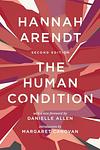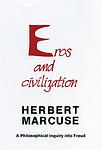The Greatest German "Political, Nonfiction" Books Since 1950
Click to learn how this list is calculated.
This list represents a comprehensive and trusted collection of the greatest books. Developed through a specialized algorithm, it brings together 300 'best of' book lists to form a definitive guide to the world's most acclaimed books. For those interested in how these books are chosen, additional details can be found on the rankings page.
Genres
The "Political" category of books encompasses works that explore the theory, practice, and history of government and politics. These books may cover topics such as political ideologies, political systems, political institutions, political movements, and political leaders. They may also examine the relationship between politics and other areas of society, such as economics, culture, and international relations. Political books can be both informative and thought-provoking, offering readers insights into the complexities of the political world and the challenges of governing in a democratic society.
Countries
Date Range
Reading Statistics
Click the button below to see how many of these books you've read!
Download
If you're interested in downloading this list as a CSV file for use in a spreadsheet application, you can easily do so by clicking the button below. Please note that to ensure a manageable file size and faster download, the CSV will include details for only the first 500 books.
Download-
1. The Origins of Totalitarianism by Hannah Arendt
The book explores the roots of totalitarian systems, particularly focusing on Nazi Germany and Stalinist Russia. It delves into the historical, social, and political circumstances that led to the rise of these oppressive regimes, including anti-Semitism, imperialism, and the decline of the nation-state. The author further discusses the nature of power, the role of propaganda, and the manipulation of the masses in these systems, providing a comprehensive analysis of totalitarianism.
-
2. Eichmann in Jerusalem: A Report on the Banality of Evil by Hannah Arendt
This book is a thought-provoking exploration of the trial of Adolf Eichmann, a major organizer of the Holocaust. The author argues that Eichmann was not a fanatical ideologue, but rather an ordinary individual who simply followed orders and bureaucratic procedures, highlighting the terrifying potential for evil in any system that values obedience over personal responsibility. The concept of the "banality of evil" is introduced, suggesting that horrific acts can be committed by ordinary people under certain conditions.
-
3. A Comparative Study Of Total Power by Karl Wittfogel
The book in question is a scholarly examination of the concept of 'hydraulic civilization,' a term used to describe societies that manage large-scale water projects such as irrigation and flood control. The author argues that the bureaucratic structures necessary to control water resources in arid regions historically led to the centralization of power and the development of autocratic or despotic forms of government. Through comparative analysis, the work explores how the management of water resources influenced social, economic, and political structures, and how this 'total power' shaped the civilizations in question, with a particular focus on Asia. The study delves into the relationship between natural environments, technological capabilities, and the evolution of political systems.
-
4. Crowds And Power by Elias Canetti
This book is a seminal work of social philosophy that explores the dynamics of crowds and their influence on power structures. Delving into the psychology of mass movements and the behavior of individuals within groups, the text examines how crowds emerge, their development, and their impact on history and politics. The author draws from a wide array of disciplines, including sociology, psychology, and anthropology, to analyze the nature of power itself and the role that fear, religion, and symbolism play in the formation and manipulation of collective behavior. The work is both a theoretical study and a critique of the forces that shape human civilization and the often irrational nature of group influence.
-
5. The Burden of Our Time by Hannah Arendt
"The Burden of Our Time" is a profound exploration of totalitarianism and the nature of power. The author delves into the rise of authoritarian regimes in the 20th century, particularly focusing on the Nazi and Stalinist systems. The book examines the socio-political conditions that enable such regimes to seize power, and the mechanisms they use to maintain control. It also presents a philosophical analysis of the human condition, exploring themes of freedom, authority, and the public and private realms of life.
-
6. Die Totalitäre Erfahrung by Karl Dietrich Bracher
The book in question provides a comprehensive analysis of totalitarianism, exploring the political and social conditions that give rise to such regimes. It delves into the characteristics of totalitarian states, examining how they gain and maintain power through the manipulation of ideology, the use of terror, and the control of mass communication. The work also reflects on the historical instances of totalitarian governments in the 20th century, offering insights into the dangers they pose to individual freedoms and democratic structures. Through its examination of the dynamics of total control, the book serves as a warning about the fragility of democratic institutions and the constant need to defend them against authoritarian threats.
-
7. The Theory Of Communicative Action by Jürgen Habermas
The book is a seminal work in social theory that explores the concept of communicative action, where individuals interact based on mutual understanding and pursue rational arguments, consensus, and cooperation rather than merely acting for individual success. The author critiques the instrumental and strategic action in modern societies and argues that communicative action is essential for maintaining the rationality and democratic nature of human interactions. The work delves into the structures of how language and social interaction form the basis of society and how distortions in communication can lead to social issues, emphasizing the importance of transparent and undistorted communication in achieving genuine understanding and societal cohesion.
-
8. The Human Condition by Hannah Arendt
The book in question is a philosophical examination of the nature of human activities: labor, work, and action, and their fundamental role in the fabric of society. The author delves into the historical development of these activities, distinguishing them from one another and exploring their transformation in the modern age. The text critically reflects on the decline of the public realm and the rise of the private, the impact of automation on human purpose, and the loss of meaningful political action in contemporary life. The work is a profound inquiry into the ways in which human beings interact with the world, each other, and themselves, ultimately seeking to understand the conditions under which individuals live, act, and establish their presence in the world.
-
9. Eros And Civilization by Herbert Marcuse
"Eros and Civilization" is a seminal work in critical theory that explores the interplay between societal structures and human desires. The book argues that the progress of civilization has necessitated the repression of basic human instincts and desires, as dictated by the performance principle governing capitalist societies, which prioritizes productivity and control over pleasure. Drawing on Freudian psychoanalysis, the author proposes the possibility of a non-repressive society where pleasure and work can coexist harmoniously. This work challenges traditional notions of utility and rationality in modern industrial societies, advocating for a liberation of human desires through aesthetic and libidinal expressions that could lead to a more fulfilling existence.
-
10. Oriental Despotism by Karl August Wittfogel
"Oriental Despotism" presents a theory that ancient bureaucratic societies, particularly those in Asia, developed as a result of the need to manage large-scale irrigation systems. The author argues that the control of water resources in arid regions led to the creation of centralized, autocratic power structures, which he terms "hydraulic despotisms." These governments wielded significant control over their subjects, as the management and distribution of water was crucial for agriculture and survival. The book explores how this form of governance influenced the political and social structures of various Eastern civilizations, contrasting them with Western societies that developed under different ecological conditions.
Reading Statistics
Click the button below to see how many of these books you've read!
Download
If you're interested in downloading this list as a CSV file for use in a spreadsheet application, you can easily do so by clicking the button below. Please note that to ensure a manageable file size and faster download, the CSV will include details for only the first 500 books.
Download






